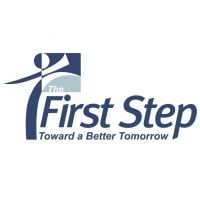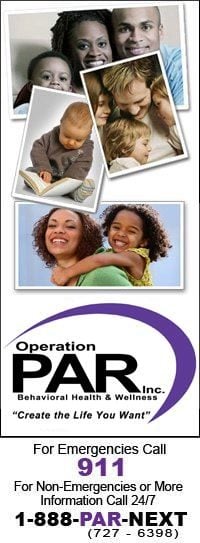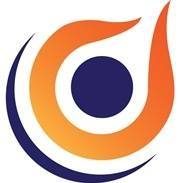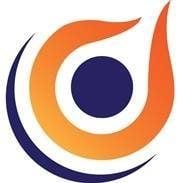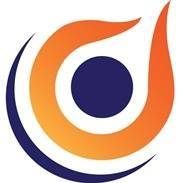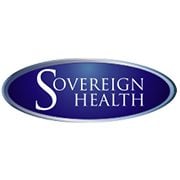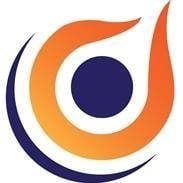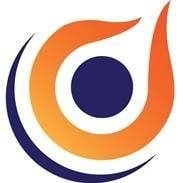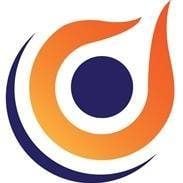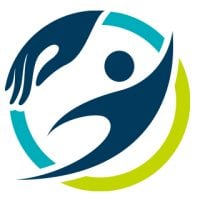Coastal Behavioral Healthcare - FACT Team
Drug Rehab Center in North Fort Myers, Florida
Coastal Behavioral Healthcare is a mental health and substance abuse facility in North Fort Myers, FL offering a range of treatment approaches including specialized therapies, residential long term care, and cognitive behavioral therapy, with a team of certified and experienced professionals striving to provide their patients with the best possible care.
Multiple patients have reported Coastal Behavioral Healthcare - FACT Team as permanently closed.
Research other rehabs in North Fort Myers, Florida, or get help finding an open facility.
About Coastal Behavioral Healthcare - FACT Team in Florida
Coastal Behavioral Healthcare - FACT Team is a reputable dual diagnosis and mental health treatment facility located in North Fort Myers, Florida. Dedicated to helping individuals on their journey to sobriety, Coastal Behavioral Healthcare - FACT Team offers a range of specialized services to cater to the unique needs of individuals struggling with dual diagnoses and mental health conditions. With outpatient levels of care, this facility emphasizes comprehensive treatment plans that aim to address both substance abuse and underlying mental health issues in a holistic and integrated manner.
Coastal Behavioral Healthcare - FACT Team provides a variety of services and treatment methods for addiction and substance abuse. Their approach focuses on dual diagnosis, acknowledging the intersection between addiction and mental health conditions. Through evidence-based therapies and personalized treatment plans, individuals receive individual and group counseling sessions to address underlying mental health issues while learning coping skills to overcome addiction challenges. Additionally, this facility offers educational programs and support to develop relapse prevention strategies, enhance life skills, and foster personal growth. The dedicated team at Coastal Behavioral Healthcare - FACT Team understands the importance of treating the whole person in order to achieve long-term recovery.
Genders
Ages
Modality
Additional
Conditions and Issues Treated
When someone in struggles with both addiction and mental or emotional illness, this is considered a dual diagnosis. Dual diagnosis treatment can include therapy for these issues to happen simultaneously, which will allow either of them to be treated effectively.
Sometimes people who have suffered from addiction disorder also suffer from co-occurring disorders such as depression, anxiety, bipolar disorder, etc., making them “dual diagnoses.” Dual diagnoses require specialized treatment programs where drug and alcohol addiction are addressed along with psychiatric illnesses. Some rehabilitation facilities provide patients suffering from cooccurrences a program with highly integrated services and a clean environment with few distractions to help them succeed.
Levels of Care Offered
This center offers a variety of custom treatment tailored to individual recovery. Currently available are Dual-Diagnosis, Outpatient, with additional therapies available as listed below.
Outpatient treatment is often used for drug addicts in drug rehab. Outpatient treatment consists of counseling and therapy sessions. This form of treatment is also called ‘day-treatment’. The outpatient treatment process begins with the addict’s initial detox period, lasting about ten days.
Outpatient treatment is used for those who are at moderate risk for ‘slipping back’ into the addiction, for those who:
- Are not currently experiencing any side effects from withdrawal and can handle social pressure
- Can handle stressors that might trigger relapse
- Have a stable living environment or have moved out of their previous environment, which was not conducive to being sober
- Have a support system that allows them to go to a facility a few times a week while still keeping their current responsibilities
- Have no legal obligations, being either on parole or probation, that require them to seek treatment at a mandatory facility
- Are not currently experiencing any side effects from withdrawal and can handle social pressure
- Have a stable living environment or have moved out of their previous environment, which was not conducive to being sober
Therapies & Programs
Because no single treatment is effective for all addicts, the goal of treatment and therapy should be to figure out what works best for each individual. Tolerance and withdrawal levels differ from person to person, affecting the treatment intensity required. Addiction treatment should aim to help addicts develop healthy coping mechanisms for dealing with their addiction and its underlying causes.
Couples therapy works with clients and significant others in a professional capacity to improve relationship dynamics. This can be helpful for addicts who are trying to marry the idea of recovery into their work, family, social lives – any aspect that has to do with relationships. Through counseling sessions, addicts will have an opportunity to talk about their addiction with professional partners.
Family therapy is beneficial for people who are in addiction treatment services because it offers addicts the opportunity to work with their family members to better understand what led them to make choices that contributed to their addiction.
This type of therapy helps family members reach a deeper understanding of how they can best support their loved one during recovery. It also helps the addict better understand their own motivations and triggers that led them to turn to substance abuse.
Family therapy can help addicts in the following ways:
- Assists family members in processing difficult feelings so they don’t blame or resent recovering addicts
- Assists family members in understanding how addiction has impacted the addict and everyone who is involved with them
- Allows the addict to take responsibility for their actions, while encouraging improved communication skills
- Helps family members understand how to best support an individual in recovery so addicts don’t relapse again.
Group therapy can help build a stronger support system and give addicts in North Fort Myers, FL insight into their addiction that they gain through shared conversations. Group therapy occurs in a controlled group environment, exclusive of one on one meetings. This makes it safer for patients to feel comfortable sharing the struggles they’re going through and gaining perspective.
Trauma therapy is beneficial for people who are recovering from drug addiction because it helps them heal from past traumas that may have caused them to turn to harmful substances or led them to experience negative emotions that contributed to their destructive behaviors.
This type of treatment works by processing difficult experiences so individuals can learn how to process these events without having to turn to substances for coping.
Trauma therapy can help addicts in the following ways:
- Helps individuals understand their experiences and emotional responses to difficult events, including why they turned to drugs or alcohol
- Provides them with comfort and support while working through difficult emotions related to these traumatic experiences
- Offers an opportunity for addicts to have a voice and be heard, which can improve their self-esteem
- Can help them develop coping skills so they can better respond to triggers instead of turning to substance abuse.
Cognitive-behavioral therapy is a technique that is used to help people with addiction. Specifically, it is a way of identifying thoughts and behaviors that cause the addiction. It is typically used in an individual counseling session.
The content explains cognitive behavioral therapy and how it works to address some behaviors that may be leading to unintended consequences in their life, as well as its benefits for those seeking sobriety.
It works by helping people to talk through their issues and addressing the thoughts that cause said behaviors. It is an excellent way of learning about oneself and one’s perception of the world.
Coastal Behavioral Healthcare Associated Centers
Discover treatment facilities under the same provider.
- Coastal Behavioral Healthcare - Compass Center in Punta Gorda, FL
- Coastal Behavioral Healthcare - Tamiami Trail in North Port, FL
- Coastal Behavioral Healthcare - Children Services in Sarasota, FL
- Coastal Behavioral Healthcare - Kreisman Campus in Sarasota, FL
- Coastal Behavioral Healthcare - Venice in North Port, FL
Learn More About Coastal Behavioral Healthcare Centers
Additional Details
Specifics, location, and helpful extra information.
North Fort Myers, Florida 33903 Phone Number(239) 939-6111 Meta DetailsUpdated November 25, 2023
Staff Verified
Coastal Behavioral Healthcare - FACT Team Patient Reviews
There are no reviews yet. Be the first one to write one.
North Fort Myers, Florida Addiction Information
Florida is one of the nation's epicenters for substance abuse and drug-related overdoses. In 2014, around 410,000 Florida residents were addicted to drugs and alcohol. Over the last 10 years, 12% of all deaths in the state were attributed to substance abuse. Treatment admissions for alcohol reached 24,329 patients in 2016, and 2.5% of Florida high school students admitted to using crack cocaine.
In 2017, there were 1,290 reported cases of a drug overdose in Lee County, which is where North Fort Myers is located. This is a 36% increase from 2016. 48% of people in North For Myers who abuse drugs don't seek treatment. The most commonly abused substances are alcohol, marijuana, and prescription drugs.
Treatment in Nearby Cities
- Saint Cloud, FL (116.2 mi.)
- Perrine, FL (121.9 mi.)
- Madeira Beach, FL (95.2 mi.)
- Citra, FL (190.3 mi.)
- De Bary, FL (156.7 mi.)
Centers near Coastal Behavioral Healthcare - FACT Team
The facility name, logo and brand are the property and registered trademarks of Coastal Behavioral Healthcare - FACT Team, and are being used for identification and informational purposes only. Use of these names, logos and brands shall not imply endorsement. RehabNow.org is not affiliated with or sponsored by Coastal Behavioral Healthcare - FACT Team.
